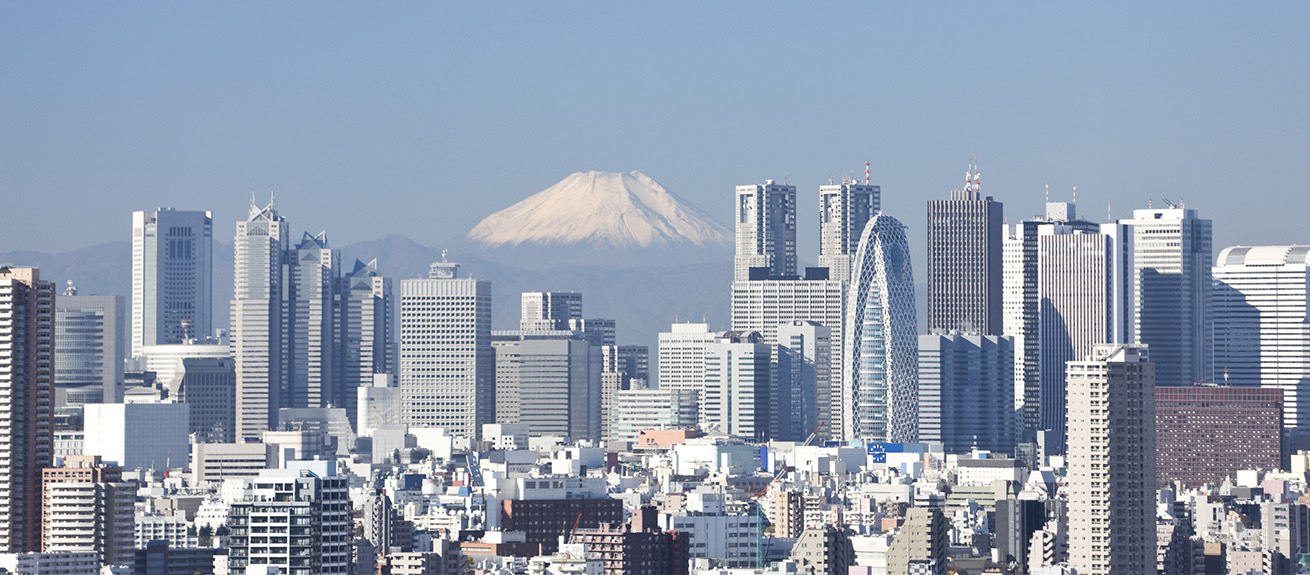
Time to invest in Japan!
Trust in the economy has recently been surging among Japanese companies as well as among consumers. The most recent “Tankan” (the short-term economic survey of enterprises issued by the Bank of Japan, last December) shows the highest level of confidence among corporations since August 1991. According to the 2017 annual survey from the Prime Minister’s Office, 73.8% of the Japanese indicated that they were basically satisfied with their current standard of living (the highest percentage recorded since the survey started asking the question, more than 50 years ago!). Merrill Lynch, shows that Japan’s real gross domestic product grew by 1.8% during 2017, and is expected to keep up at a rate of 1.7% in 2018. This is modest growth compared with other Asian economies. However, as the Japanese economy is likely to grow at the same rate this year as it did in 2017, it will be the longest period of recovery since the end of World War Two.
Five key reasons for optimism and confidence:
1. Over the last 18 months, Japan has been experiencing its second longest economic expansion in the post-World War Two era; and although we all know that you can’t fully predict the future by looking at the past, the current positive mood is driving a healthy spiral of cautious optimism among businessmen, the government (and consumers as highlighted earlier by the annual Prime Minister Office’s survey on the quality of life of the country’s population).
2. Japanese companies have stockpiled a lot of cash reserves and have been encouraged to raise wages and make capital investments in order to overcome capacity issues and improve productivity. Given the current labor shortage, salary increases are likely to happen this spring, bringing more consumer spending and inflation within the 2% target set by the Japanese government. The Abe administration has announced that if large corporations raise wages by 3% and make capital investments of 90% or more of their depreciation costs, they could receive a 20% tax deduction from the wage increase costs.
3. Last year, the global economic environment was very favorable to Japanese companies. Asian economies are expected to continue to do well and China’s business environment is improving. The probability of a major slump in the Chinese economy, a key concern for Japan Inc. seems to be fading away as Japanese economists and business people anticipate a smooth deceleration of the Chinese economy rather than a rough landing.
4. Prime Minister Abe will not face another general election before 2021 and is poised to become the longest serving postwar Japanese Prime Minister, giving extra political stability to the country. Faced with a weakened opposition, Abe has his hands free to carry on with his economic and constitutional reforms. Since he took office in December 2012, the yen has declined more than 20% against major international currencies (while Tokyo stocks have nearly doubled) to nicely improve Japanese companies’ competitiveness.
5. Finally, the construction of more hotels and infrastructure will continue this year, as the country gears up for the Tokyo Olympics and Paralympics in 2020.
Key challenges ahead
At the same time, a number of major challenges remain. Let’s focus on what many consider the three major issues the country is facing:
1. Most of Japan’s internal problems are caused by an ageing population, low birthrates and a shrinking labor force. These combined issues remain the number one headache for the long-term competitiveness of Japan. At the same time, some economists and business people argue that this challenge is also creating great opportunities for Japanese and foreign companies in the health industry and robotics, for example.
2. Redefining a new industrial model and developing a global mindset among executives and business leaders are key for Japanese companies to compete effectively on a global scale. With limited growth within the domestic market, Japanese firms have no choice other than to become more competitive abroad. Until recently, Japanese companies were very competitive globally in some core manufacturing sectors (e.g. automotive, electronics, machine tools, etc.) However, these industries are either being redefined (by new players like Tesla) or diminished (such as consumer electronics). And when it comes to services (hotels, insurance, software, etc.), few Japanese companies have really made it globally!
3. On the foreign policy front, dealing with the threat of North Korea remains a major issue. Kim Jong-Un’s recent warning that he was ready to “throw Japan to the bottom of the sea” remains a subject of deep concern for the Japanese public. At the same time, the North Korean threat is helping Abe’s agenda to revisit the Japanese constitution and reinforce the country’s military forces.
Time to invest
Given the overall Japanese environment, the time is ripe for foreigners to invest more in Japan. Short term, the stock market is likely to continue to do well. The Nikkei Index has reached a new 26-year high and analysts predict the gains to continue. When the market reopened after New Year’s Day, the Nikkei hit 23,952.61, its highest level since November 1991. After a fairly long period of hesitation, many companies are working on structural reforms. A good case in point is SONY, which is undergoing a major restructuring drive focusing on image sensors and gaming. The company recently raised its full-year operating profit forecast by more than 25%, which is likely to beat its current profit record set in 1998.
Mid-term and long-term, Japan offers some formidable opportunities for foreign companies. As mentioned earlier, the ageing population is creating major openings for companies in the healthcare and wellness industries. The same is true for robotics but these industries may be fairly obvious for investors. The biggest opportunities probably lie in new industries such as software. Let’s take the car industry as an example: The “old” car manufacturing model was based on steel and engineering and created the fortunes of the Toyotas and the like. However, with autonomous cars setting the tone for the future, the “new” car manufacturing model will increasingly rely on software, historically not a Japanese strength! Also, despite an attempt to replicate the success of Google, Amazon and Apple, few Japanese companies have been able to compete locally or internationally with these American giants.
All in all, digital disruption is redistributing the cards among international players and giving a boost to the world’s 3rd largest economy. At the same time Japanese corporations are reinventing themselves closing major competitiveness gaps. All this adds up to creating potentially the biggest investment opportunities for foreigners in Japan since WWII.
Dr. Dominique Turpin is the Dentsu Chaired Professor at IMD.
Research Information & Knowledge Hub for additional information on IMD publications
Research Information & Knowledge Hub for additional information on IMD publications
Research Information & Knowledge Hub for additional information on IMD publications
Research Information & Knowledge Hub for additional information on IMD publications
Research Information & Knowledge Hub for additional information on IMD publications
Research Information & Knowledge Hub for additional information on IMD publications
Research Information & Knowledge Hub for additional information on IMD publications
Research Information & Knowledge Hub for additional information on IMD publications
Research Information & Knowledge Hub for additional information on IMD publications
Research Information & Knowledge Hub for additional information on IMD publications
Research Information & Knowledge Hub for additional information on IMD publications





